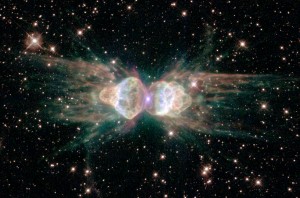Belief In Science
Last night, I saw a post that said, “before Facebook, I just assumed we all believed in science” which first made me smile, but left me unsettled. The confusion is rooted in an implied, but poorly framed question: which is truer? science or faith? Belief and science are neither mutually exclusive, nor interchangeable. Apart from ideological battles that hijack science for political or economic ends, there is a disturbing quality to efforts that seek to place either science or belief in dominance over the other. Contemporary life requires, and is made far richer, by arriving at a balance of both world-views.
Science is about what can be observed, and explanations of what is observed, that are verified by repeatability over time. Science is not dependent on belief. Science holds truth as the best understanding that evidence and reason gives us access to at any moment. When one model or theory “disproves” prior understandings, we don’t mourn, we celebrate the advancement.
You can believe your way into error. Belief can cloud what we observe and how we interpret it, so beliefs are put aside, as much as possible, to arrive at unbiased “objective” observations, unprejudiced by investment in maintaining prior understandings. If there is any faith involved, it is faith in the PROCESS of science, rather than any particular findings. Error is defined as a departure from this process, often revealed when efforts to replicate findings by others using documented processes don’t work (think “cold fusion”). Science demands the courage to be wrong, to wrestle with confusion, and to be willing to replace what we thought we knew with what more reliably explains what we see.
People who develop the reasoning processes demanded by science are less likely to accept without question statements that relate to how things work (economic, political or practical) or what needs to be done.
Science doesn’t care about how you feel about any of this, thank you very much. Attempts to attach deeper meaning through science departed from the discipline shortly after the branch of metaphysics appeared.
Belief goes beyond what can be observed, with a goal of revealing truths that last beyond any human lifetime. Faith in these eternal truths, that can be revealed and provide deeper meanings to accompany our journey through the material world, is required. Often this faith is tested by “objective” experience. Replicability is not the highest master. Once is enough. Evidence, in its presence or absence, is beside the point. As. St. Thomas Aquinas said, “To one who has faith, no explanation is necessary. To one without faith, no explanation is possible.”
Communities of faith share belief systems, and Error is defined as a departure from these systems of belief. Science may explain this world, but for those who believe the material world is not the only, and certainly not our ultimate destination, it is essential that we use our time on earth to prepare for what comes after. Belief is inextricably linked with feeling. The awe, wonder, gratitude that accompany insights and understanding touch all the aspects of our being that are “off limits” to the scientific approach.
You can think your way into error. People can use ideas and words to twist beliefs to suit their own ends. History is filled with unending examples of how differences in belief have been used to justify the worst instances of violence, hatred and destruction. Each day, the news shows how adept despots and demagogues are at using thought to calculate strategies that mobilize mass beliefs to support personal, political and economic ends.
People who develop skill in aligning their beliefs and actions are less likely to accept without question statements that sidestep ethical, moral or social consequences.
Belief doesn’t care what you think about any of this, thank you very much. One can’t think one’s way into a new way of acting. One can only act one’s way into new ways of thinking.
It is not surprising that many of the scientists I’ve known are deeply spiritual people, though often they keep their beliefs within their personal circle of friends and family. It is also not surprising that many artists carefully follow and are inspired by the new understandings science provides into how our world works, and the incredible connections from subatomic to galactic levels. This is the richness that opens up to anyone and everyone who most fully develops and balances these two very human, very essential ways of being in the world. I for one am grateful that we have both.

